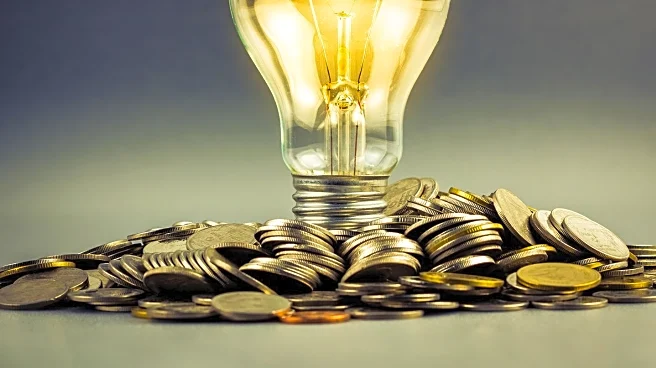What's Happening?
As electricity bills continue to rise, consumers are seeking ways to reduce their utility costs. A CNET survey reveals that nearly 80% of adults are stressed about increasing utility bills, including electricity, gas, and water. One effective method to lower electricity bills is unplugging appliances when not in use, as many devices consume power even when turned off, known as 'phantom load.' This practice, along with other strategies like using energy-efficient appliances and optimizing thermostat settings, can significantly reduce household energy consumption.
Why It's Important?
The rising cost of electricity is a significant concern for many U.S. households, impacting financial stability and increasing stress levels. By adopting energy-saving practices, consumers can mitigate these costs, potentially saving hundreds of dollars annually. This not only benefits individual households but also contributes to broader environmental goals by reducing overall energy consumption and carbon emissions. As utility prices continue to climb, finding effective ways to manage and reduce these expenses becomes increasingly crucial.
What's Next?
Consumers are likely to continue exploring and implementing energy-saving measures as utility costs rise. This may include investing in smart home technology, such as smart plugs and thermostats, to automate energy savings. Additionally, there may be increased interest in energy-efficient appliances and renewable energy sources, such as solar panels, to further reduce reliance on traditional electricity sources. As awareness grows, utility companies may also face pressure to offer more competitive rates or incentives for energy conservation.
Beyond the Headlines
The focus on reducing electricity bills highlights a broader shift towards sustainable living and energy efficiency. This trend may encourage innovation in energy-saving technologies and increase demand for eco-friendly products. It also underscores the importance of consumer education on energy usage and conservation, potentially leading to more informed decisions and lifestyle changes that prioritize sustainability.









